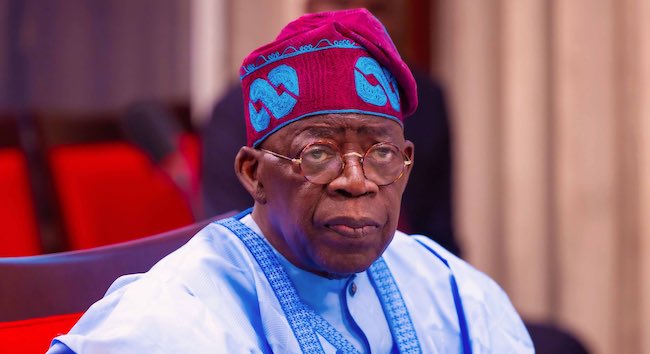Africa
Rivers State Emergency Rule: Did President Tinubu Err? -By Ibrahim Mustapha Pambegua
In a democratic setting, leaders are emerged through elections. To use emergency rule to suspend democratically elected governor and the state house of assembly amount to anti-democracy. This rule must be resisted by Nigerians. The clause, unless it is reviewed to reflect our democracy rule, will continue to set a bad precedent to Nigeria’s fledging democracy.

On Tuesday last week, president Bola Ahmed Tinubu, imposed state of emergency in Rivers state following the no end in sight lingering political crises bedevil the state. It can be recalled, the political crises in Rivers State began few months after the governor, Siminalayi Fubara, assumed office. Governor Fubara who fell apart with his political godfather, Nyesom Wike, was the immediate past accountant general of the state. All efforts to broker a peace between the warring parties by various stakeholders, including president Bola Ahmed Tinubu, has proved abortive. Before the political impasse persisted,27 members of state house of assembly loyal to Wike defected to APC which paved the way of four pro-fubara faction. The four members have been presiding and legislating the affairs of the house, including passing the state’s budget which have been described as unconstitutional. In what appeared to be a respite, the supreme court recently, ruled that the Central Bank of Nigeria and the Accountant-General of the Federation must halt the release of funds to the Rivers State Government until the Rivers House of Assembly is properly constituted in line with the 1999 Constitution. The apex court also affirmed the Martins Amaewhule-led Rivers House of Assembly members as the valid lawmakers.
Governor Fubara having received the certified true copy of the judgement promised to abide by the supreme court ruling. However, attempt to resubmit the 2025 budget to reconstitute state house of assembly was unsuccessful, as the venue for the function was locked and members of the state assembly disappeared. The governor’s in ability to re-submit the budget to Amaewhule-led state assembly fuelled speculation that plans were being hatched by the pro- Wike lawmakers to impeach him. The new turn of events attracted backlash. Those who threatened fire and brimstone,if anything happens to the governor begin to carry out attacks on pipelines and other critical national assets. President Bola Ahmed Tinubu, during his national broadcast, shortly after declaring state of emergency, accused governor Fubara for not doing anything to stop the militants attacks or disown their threat.
The declaration of state of emergency in Rivers State by president Bola Ahmed Tinubu has continued to generate mixed reactions from constitutional lawyers and public analysts. For instance, some legal experts agreed that, while section 305 of 1999 constitution vests power on president to declare state of emergency, the same section did not allow him to dismantle democracy structure or institution. Going down memory lane, between 2004 and 2006 ,former president Olusegun Obasanjo, declared state of emergency in Plateau and Ekiti states which attracted legal battle. Similarly, in 2013, overwhelmed by deteriorating insecurity and incessant attacks from Boko Haram insurgents in three North-East states, namely: Adamawa, Yobe and Maiduguri, President Goodluck Jonathan imposed state of emergency without suspending the governors. His decision was challenged by many Nigerians, including President Tinubu who was then a strong opposition figure.
That is why president Bola Ahmed Tinubu declaration of state of emergency in Rivers state ,removing state governor, deputy and members of state house of assembly come to many Nigerians as surprise. His action is also viewed as unconstitutional, null and void. With the approval of proclamation by the joint national assembly through voice votes and confirmation of Ibok-Ete Ekwe Ibas, former chief of naval staff, as military administrator for six months, the emergency rule has come to stay in Rivers State. Although, the emergency rule is geared towards restoring peace and sanity in Rivers State, president Bola Ahmed Tinubu ,must know that, two personalities :Wike and Fubara are involved in a war of political supremacy and are at the centre of Rivers state’s crises. while declaring state of emergency may provide temporary peace , the president must prevail on his FCT minister, Nyesom Wike to allow peace to reign.
The FCT minister is being accused as the architect of the Rivers State crises. Since his unfortunate fall out with Fubara, Wike has been using his closeness to Mr President to curry a political favour. There is no gain saying the facts, Rivers State political crises can be fully resolved if Wike, Fubara and their supporters agree to sheath their sword. Furthermore, section 305 of 1999 constitution, which president Bola Ahmed Tinubu capitalised to declare state of emergency is too controversial and needs more clarification from judiciary. The clause has been misused or abused by those in power. In a democratic setting, leaders are emerged through elections. To use emergency rule to suspend democratically elected governor and the state house of assembly amount to anti-democracy. This rule must be resisted by Nigerians. The clause, unless it is reviewed to reflect our democracy rule, will continue to set a bad precedent to Nigeria’s fledging democracy.
Ibrahim Mustapha Pambegua, Kaduna State. 08169056963.

























